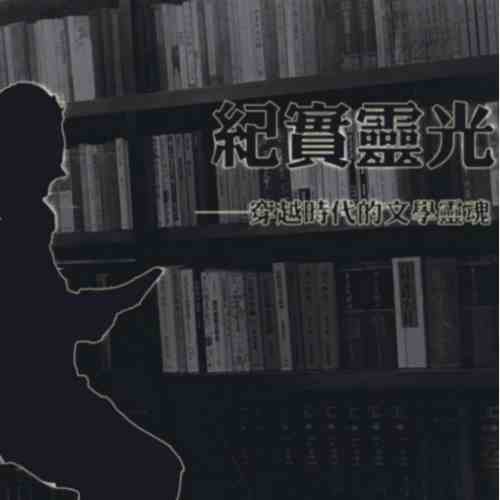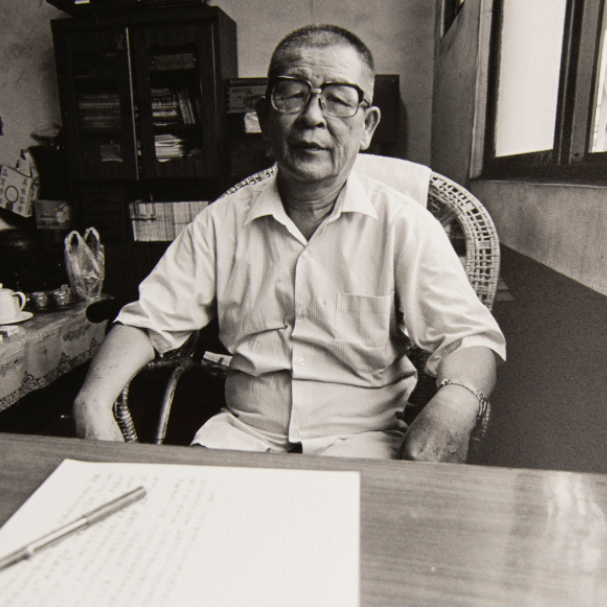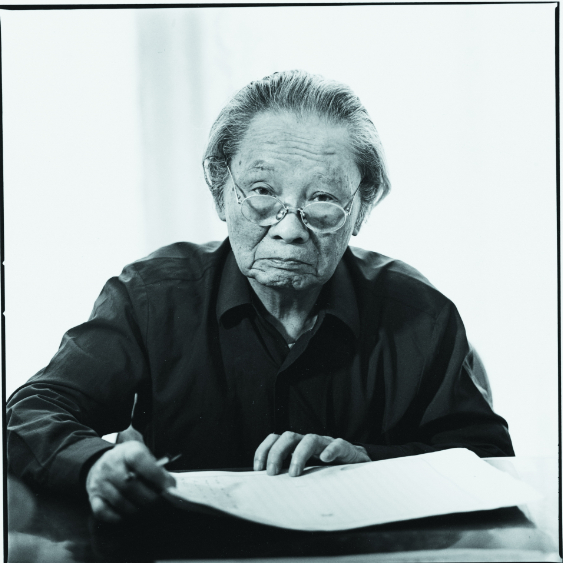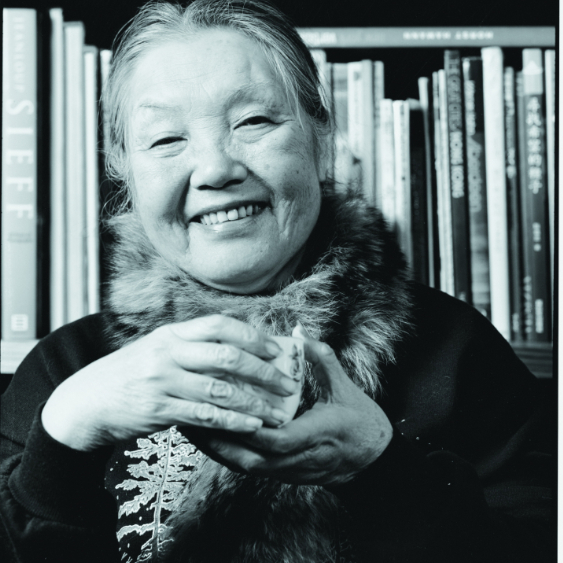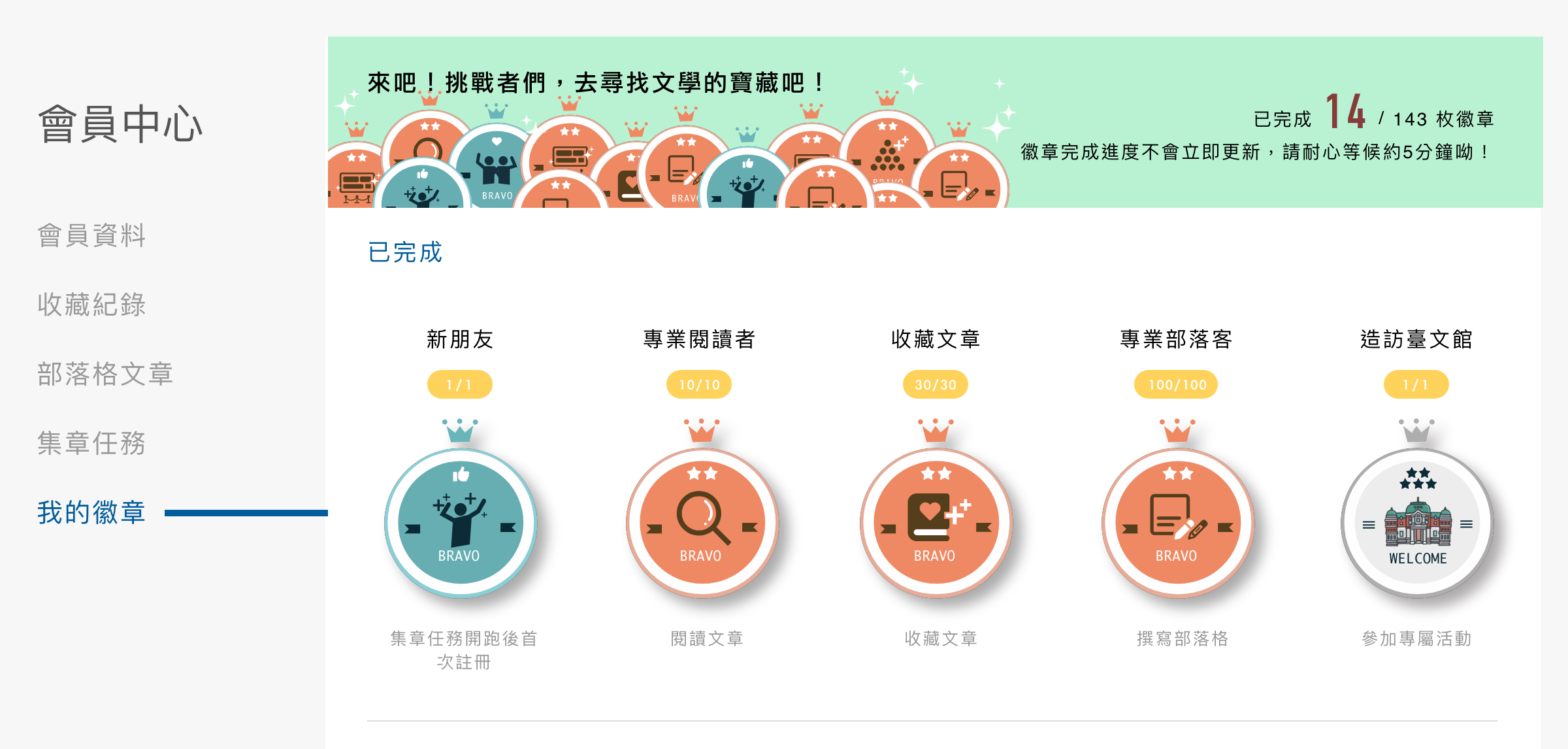Our efforts will always be in vain because we’re Taiwanese, not Japanese. If you were born Japanese, no matter how stupid you are or that you graduate from a third-class university, after carelessly spending a year or two, you can become an official. However, even though we Taiwanese are highly educated and are excellent at work, we must spend at least four to five years – sometimes up to ten years – only to become a junior official, and is no use. As Taiwanese, our political career is limited. We are in the low-ranking class forever.
——Liao Ching-hsiu, Scores, Blood and Tears
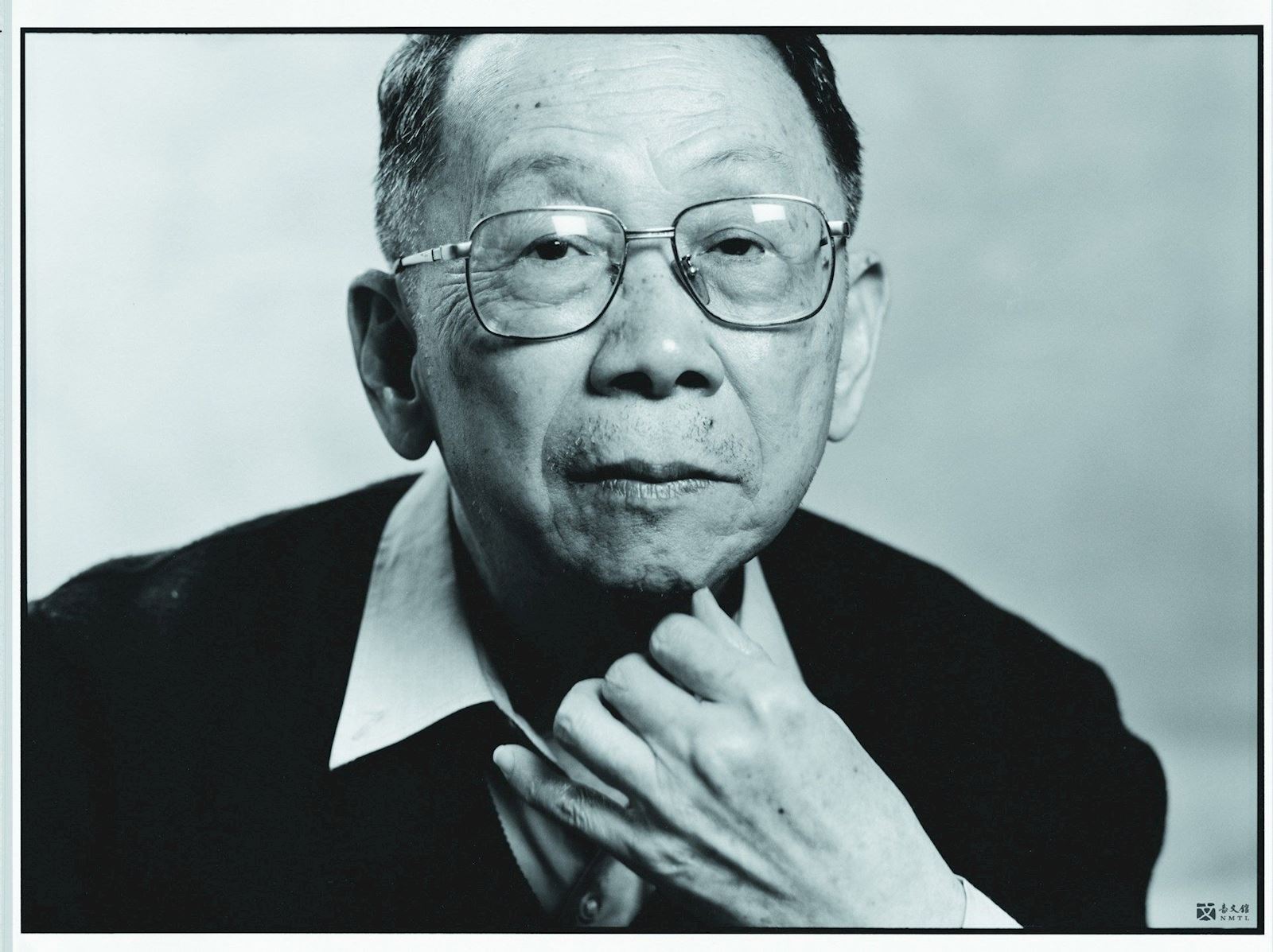
▒ Liao Ching-hsiu ▒
The writer’s bust photo, with one hand placed on chin, Photographers’ Studio, Linyi Street, Taipei City, December 2001.(Provided by Lin Po-Liang)
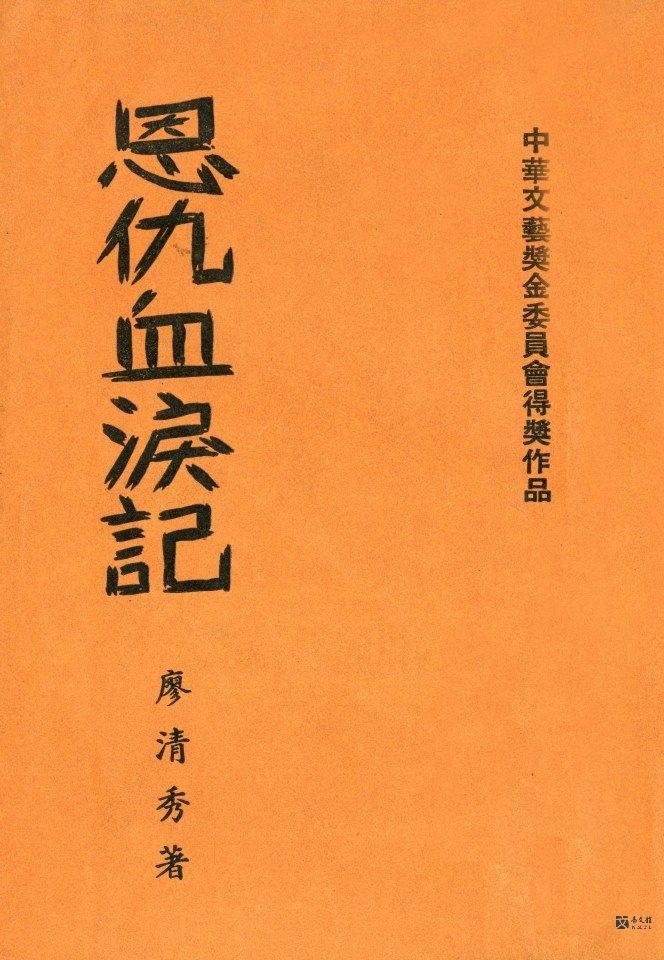
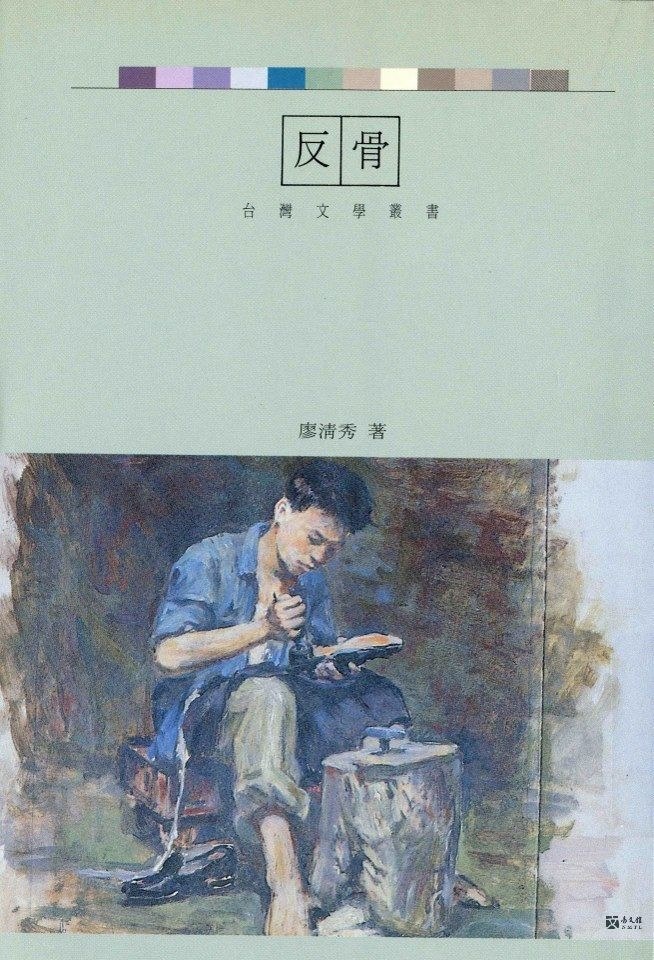
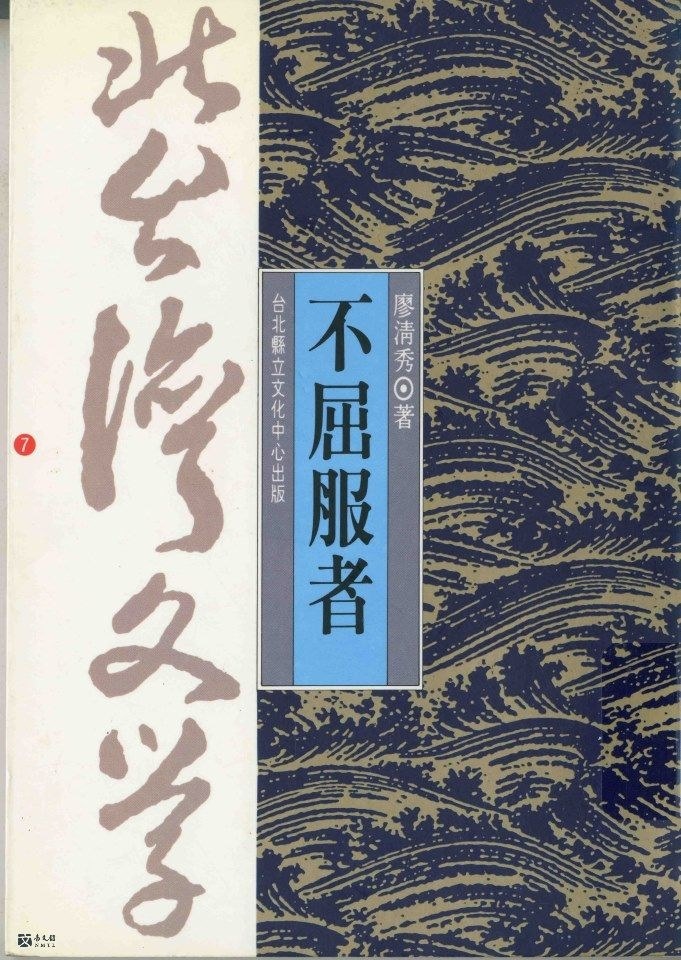
📖 “Scores, Blood and Tears” & “Rebellious” & “The Resistant”
Introduction
Liao Ching-hsiu (1927-2015) was born in Xizhi, Taipei. He was drafted into the Japanese navy in 1945 and returned to Taiwan eight months later. After the war, he started learning Chinese, and passed a general public servant exam in 1947. Liao was dispatched to the Central Weather Bureau in the next year and he served the Bureau until retirement. In 1950, for “Love Affairs with Brother-in-Law” written in Chinese, Liao was admitted to the first novel studies class held by Chinese Writer's & Artist's Association. In 1952, for Scores, Blood and Tears, the writer received the Long Novel Prize from the Chinese Literature Award Committee.
Other than novels, Liao has also translated a few works by Kan Kikuchi and Yasunari Kawabata. He translated Earthly Man,a novel written in Japanese by Chang Wen-huan in 1976. The writer has also rewritten quite a few world-famous children’s tales, such as The Three Little Pigs and Treasure Island. Liao has written Scores, Blood and Tears, First Generation, The Un-surrendering, and Kuangchengzi, as well as translated Earthly Man and Accomplice. Scores, Blood and Tears is particularly based on the writer’s own life experiences during the Japanese Rule and it evidently reveals Japanese colonists’ oppression. Other than hatred towards the colonists, however, humanistic care is also expressed.
.jpg)
Liao Ching-hsiu offered incense to his deceased wife.
Liao Ching-hsiu offered incense to his deceased wife (once in the morning and another at night), Liao’s residence in Songshan, Taipei, December 12, 2001.(Provided by Lin Po-Liang)
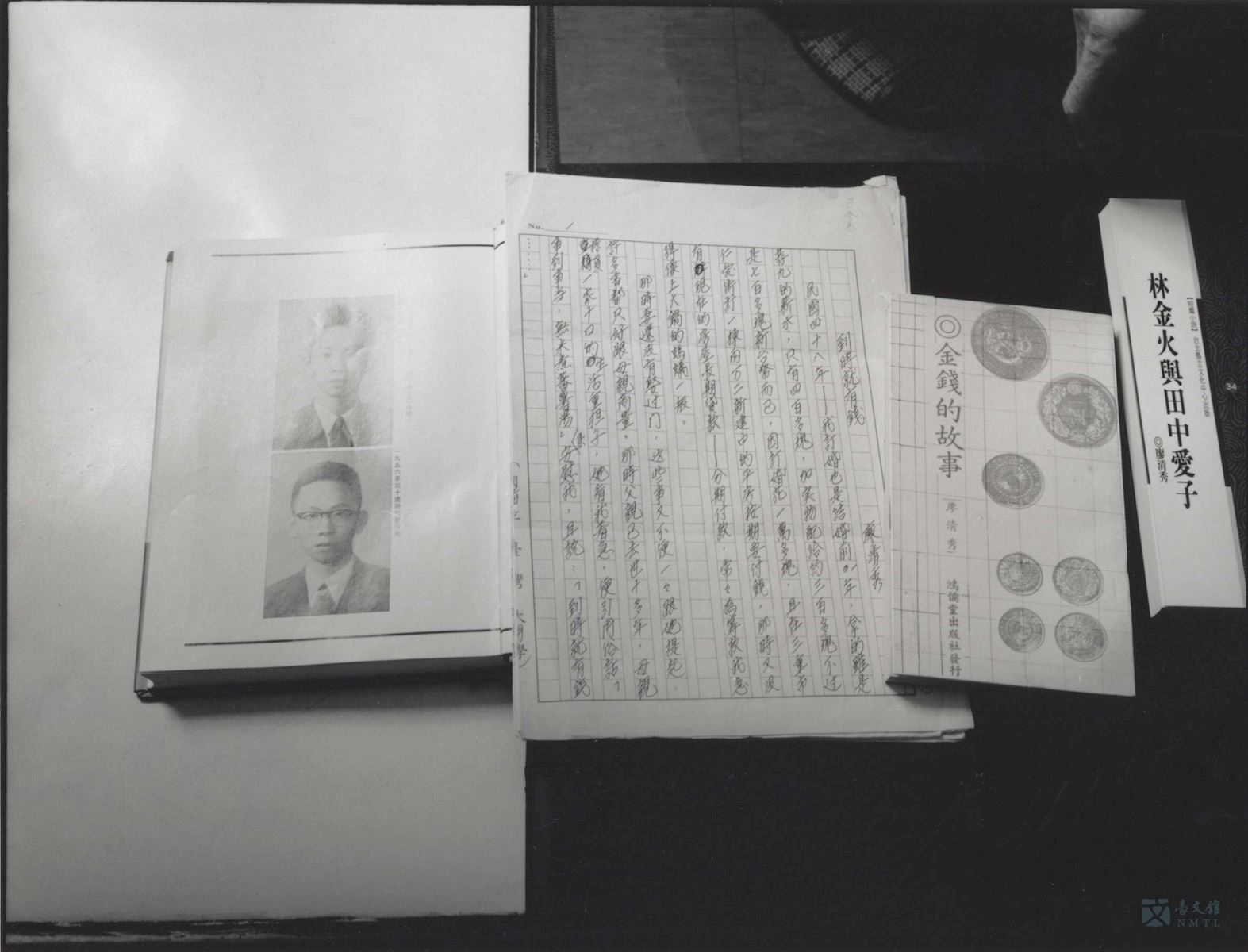
Close-up of Liao Ching-hsiu’s handwritings and publications.
The manuscript of “Money Will Come by Then” and books such as Stories of Money, December 2001.(Provided by Lin Po-Liang)
Manuscript
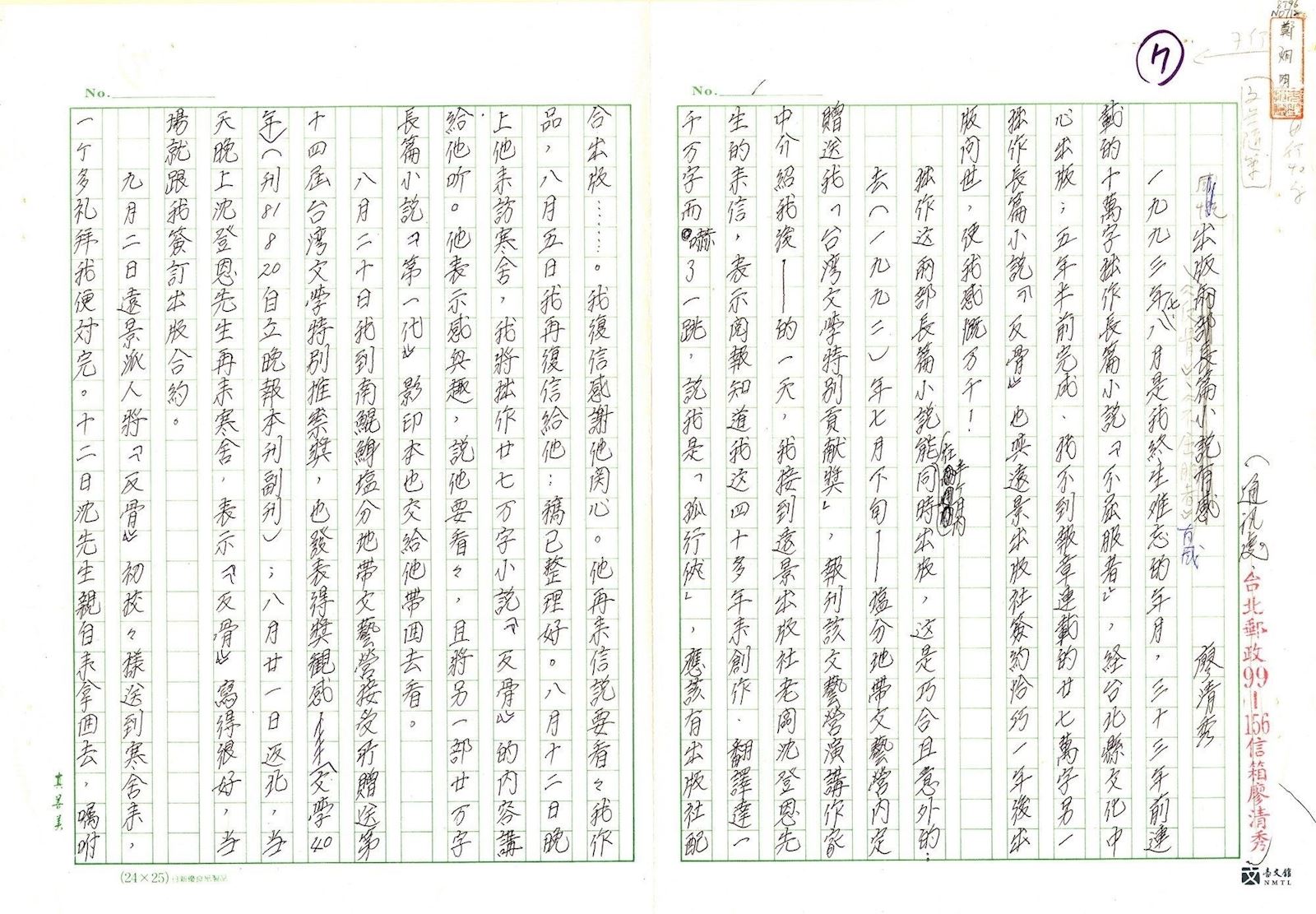
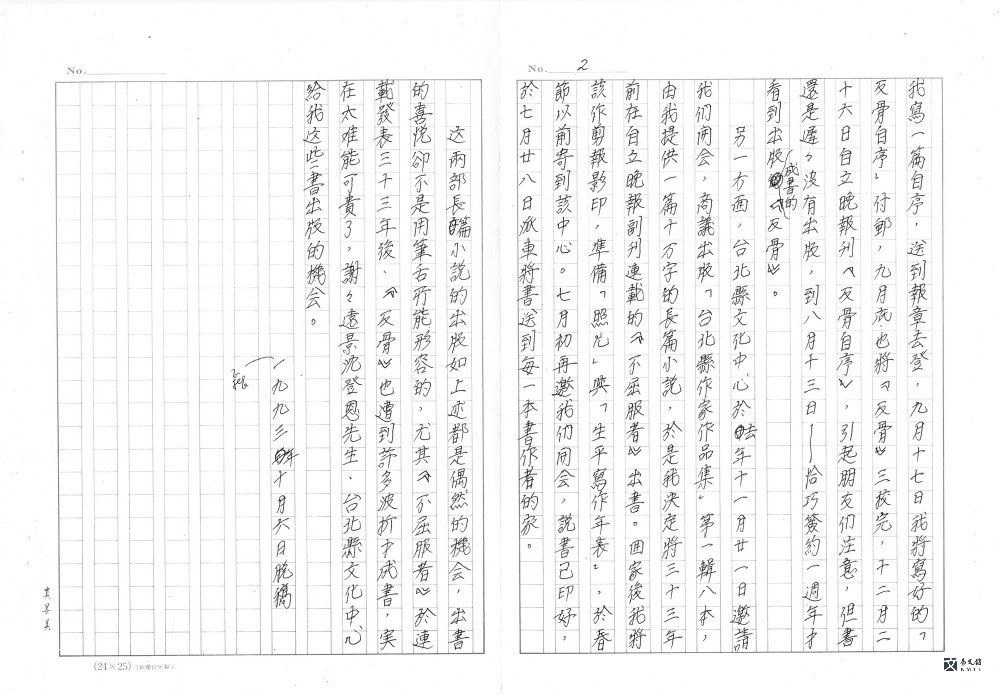
► Thoughts on the publication of Rebellious and The Resistant.
This article describes how Liao Ching-hsiu wrote two feature novels, Rebellious and The Un-surrendering – Liao received the Special Recommendation Prize of Taiwanese Literature from Nankunshen Salt Land Arts and Culture Workshop. Rebellious was published a year after Shen Teng-en, founder of Vista Publishing visited Liao in person in 1992. The Un-surrendering was included into Works by Taipei County Writers and published by Taipei County Cultural Center in 1993. In this article, Liao Ching-hsiu expressed gratitude to Vista and the Center.(Donated by Literary Taiwan / Collected by National Museum of Taiwan Literature)
